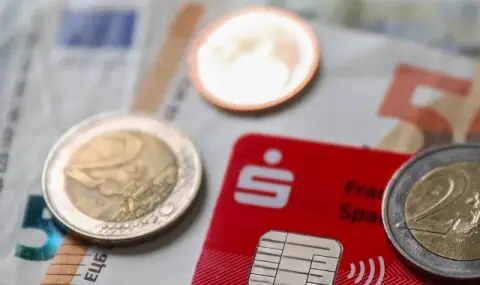Cash is almost no longer used in the Scandinavian countries. In Germany, however, it remains the preferred method of payment. What are the advantages and disadvantages of cash?
In many countries, cash payment is no longer preferred. However, there are still many places in Germany that only accept cash. How will we pay in the future?
How do they pay in Germany and elsewhere in Europe?
In Germany, cash payments were preferred for a long time, but now things have balanced out, according to a Bundesbank study cited by ARD. The share of cash payments is 26%, as cash is mostly paid for small amounts, while larger amounts are usually paid by credit or debit card.
According to UC Berkeley professor of economics of financial markets Ulrike Malmendier, the reduction in the use of cash is logical. "For many years, there has been a tendency to abandon the use of cash. This trend was significantly accelerated by the coronavirus crisis," she tells ARD. "We also observe a strong relationship with age. The younger the population, the more open they are to paying by card or directly via mobile phone."
While in France and Italy the situation is similar to Germany, cash payments are significantly less common in the Netherlands and especially in Sweden, where only about ten percent of all purchases are made in cash. Ulrike Mallendier is certain that this will not happen in Germany, mainly due to data security concerns. According to her, for the time being, the combination of cash payment and payment by card or mobile phone will be preserved.
Banknotes and coins work even if there is no electricity
One of the arguments in favor of cash is its technological independence: it works without technical devices and even in the event of a power failure. Another point is financial inclusion: cash is indispensable for people who don't have a bank account.
One of the dangers that should not be underestimated if you only pay by card or mobile phone is that it is easier to lose track of your finances. According to a study by the European Central Bank (ECB), one of the reasons people use cash is to keep track of their finances. This aspect is also important, according to Ulrike Malmendier: "In the US, I see people who go into debt because they don't realize how much money they spend."
More cash laundering
The first argument against cash is the cost: it must first be produced and then transported, for example between supermarkets and banks. In addition, cash favors money laundering, notes ARD. Less cash could make illegal transactions more difficult and thus make it easier to fight crime.
This is a frightening figure: experts estimate that every year in Germany they are "washed" 100 billion euros.
Germany is a favorite place for criminals to launder money: there are many banks, the country is politically and economically stable, and people here still prefer cash. Money laundering is also possible without cash, but it is much easier with it. That's why experts like Dirk Peglov, chairman of the Federal Association of German Criminal Investigators, are calling for a limit: "The cash limit is what my professional association has been calling for for a long time to put an end to money laundering. Then it will no longer be possible to reinvest money from criminal acts, as it is now”, the expert told the German public-law media.
In many European countries, such as Italy, France and Greece, cash limits have already been introduced. The German government does not have a unified position on the issue of national regulation. From 2027, however, there will be a standardized limit of €10,000 in cash in the EU.
The digital euro could convince the pessimists
The ECB is currently exploring the possibility of introducing a digital euro. It is envisioned to be the digital version of central bank money and complement current cash. It should be secure, simple and possibly free for merchants.
Ulrique Malmendier supports the introduction of a digital euro: "Since we all already have experience with digital payments, it won't be such a big change. The big difference is that you have the digital version of cash directly. I believe that especially older people, who are generally quite critical of digital payments, would be open to the digital euro, the expert commented to ARD.
The preparatory stage for the introduction of the digital euro has been underway since autumn 2023 and is expected to last two years. And at the same time, the use of cash in Europe is slowly but steadily decreasing.
